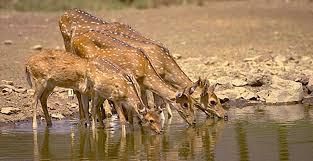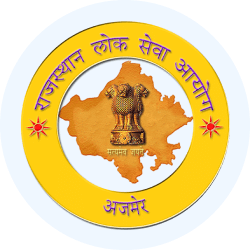RPSC RAS (Rajasthan) Exam > RPSC RAS (Rajasthan) Notes > RPSC Preparation: All subjects > Eco Tourism and Wildlife Tourism in Rajasthan
Eco Tourism and Wildlife Tourism in Rajasthan | RPSC Preparation: All subjects - RPSC RAS (Rajasthan) PDF Download
Eco Tourism in Rajasthan

- Rajasthan is a top destination for eco-tourism, adhering to eco-tourism principles.
- The region is recognized for its commitment to responsible eco-tourism, focusing on reducing the environmental impact of traditional tourism.
- Eco-tourism in Rajasthan offers opportunities to engage with local communities and experience their culture.
- The eco-tourism initiatives promote recycling, energy efficiency, water conservation, and economic benefits for local residents.
- Visiting Rajasthan allows travelers to explore serene and unpolluted natural landscapes.
Rajasthan Eco: Tourism Destinations
- Rajasthan, with its natural beauty and heritage, is an excellent destination for eco-tours.
- Popular eco-tourism spots in Rajasthan include National Parks and Wildlife Sanctuaries, in addition to heritage sites.
- Eco-tours in Ranthambore National Park and Bharatpur Bird Sanctuary/Keoladeo Ghana National Park offer remarkable wildlife experiences.
- These eco-tours provide opportunities to encounter spectacular wildlife and enjoy memorable experiences.
- Rajasthan’s eco-tours focus on entertainment in a natural environment, enhancing the overall travel experience.
Eco Parks of Rajasthan
- Eco Parks in Rajasthan: These parks aim to restore and balance the ecosystem, promoting the coexistence of wildlife and vegetation.
- Flora and Fauna: Rajasthan's desert environment hosts a diverse range of plant and animal life.
- Tourist Attraction: The numerous eco parks in Rajasthan attract visitors while helping to preserve and restore endangered wildlife.
- Natural Habitat: These eco parks offer a natural habitat for various species, including wild animals, birds, reptiles, and plant life.
Most notable Eco Parks of Rajasthan
- Bharatpur Bird Sanctuary
- Ranthambore Tiger Reserve
- Sariska Tiger Reserve
- Desert National Park
- Keoladeo Ghana National Park
- Arboretum Park
- Amrita Devi Park
Eco Tourism Travel Tips
- Proper Waste Disposal: Non-degradable items such as empty bottles, tins, and plastic bags should not be littered; instead, they should be carried back and disposed of in dustbins.
- Avoid Polythene and Plastics: Polythene and plastics are non-biodegradable and harmful to the environment; they should not be used or discarded improperly.
- Protection of Flora and Fauna: It is illegal to remove any flora or fauna, including cuttings, seeds, or roots, from their natural habitat.
- Prevent Pollution: Avoid using pollutants like detergents in streams or springs while washing or bathing.
- Refrain from Intoxicants: Avoid consuming aerated drinks, alcohol, drugs, or other intoxicants in natural environments.
- Respect Natural Habitats: Do not use loud radios, tape recorders, or other electronic devices that can disturb wildlife in their natural habitats.
- Honor Local Cultures: Respect local cultures and do not violate the sanctity of holy sites.
Rajasthan Wildlife Tourism

- Wildlife tourism involves traveling to new areas to observe and interact with local animal and plant life in their natural habitats. This includes activities such as environmental tourism, safaris, and mountain travel. Most wildlife-viewing tourism now takes place at nature conservation sites. Wildlife represents biodiversity, which is crucial for human health and the planet's overall well-being. Ecotourism offers a new perspective on the world by highlighting the contributions of all living organisms—whether animals, plants, or fish.
- Because changes to an ecosystem can have widespread effects, the entire ecological system is at risk. Humans depend on animals, insects, and plants for their survival.
- In Rajasthan, wildlife tourism is a popular activity amidst its rich cultural heritage, including forts and Havelis. The state is renowned for its famous national parks and wildlife sanctuaries, making it a haven for wildlife enthusiasts and nature lovers.
- Some notable wildlife destinations in Rajasthan include:
- Ranthambore National Park
- Sariska Tiger Reserve
- Desert National Park
Here are some of the most remarkable national parks and wildlife sanctuaries in Rajasthan that support ecotourism:
Ranthambore National Park
- Ranthambore National Park is one of India's premier wildlife destinations, renowned for its population of tigers and diverse wildlife. Located in the Sawai Madhopur district of Rajasthan, approximately 180 kilometers from Jaipur, this park is a key site for ecotourism in the state.
- It is particularly famous for its tigers, each marked with unique patterns, and is notable for being one of the few places in India where visitors can see tigers with their cubs in their natural habitat. The park offers ideal conditions for tigers to hunt and conceal themselves.
Sariska Tiger Reserve
- Sariska Tiger Reserve, situated in the Alwar District of Rajasthan, is another prominent tiger reserve in the state. Covering an area of 866 square kilometers in the Aravalli Hills, it is managed under the Government of Rajasthan's Project Tiger initiative.
- The reserve features a hilly terrain and dry deciduous forest and is home to a variety of wildlife, including Bengal tigers, leopards, nilgai, wild boar, sambar, hyenas, chital, and jungle cats. It also hosts a range of bird species such as peacocks, partridges, quails, sandgrouse, and sparrowhawks.
Desert National Park
- Desert National Park, located in the Jaisalmer district, is known for its unique desert ecosystem and rich biodiversity. It is home to a variety of desert wildlife, including the rare blackbuck. The park also supports numerous bird species, such as the endangered Great Indian Bustard, sand grouse, kestrels, lagging falcons, eagles, and vultures.
- Visitors are required to obtain a permit from the local forest department before entering the park. Notable attractions include the Sam Sand Dunes in the Thar Desert and Gadsisar Sagar Tank, which hosts a range of birdlife and is a popular tourist spot in Rajasthan.
Mount Abu Wildlife Sanctuary
- Located in the Aravalli range, Mount Abu Wildlife Sanctuary is home to a diverse array of wildlife. Key inhabitants include leopards, which are the primary predators, as well as jungle cats, sambars, wolves, hyenas, jackals, Indian foxes, wild boars, pangolins, Indian hares, and hedgehogs. Established as a wildlife reserve in 1980, it provides a haven for various species in this mountainous region.
Darrah Sanctuary
- Situated in Kota, Darrah Sanctuary is renowned for its stunning architecture and landscaping. The sanctuary hosts a variety of wildlife, including tigers, leopards, elephants, rhinos, hippos, wolves, cheetahs, nilgai, wild boars, and deer.
- It also features a rich bird and reptile population. Visitors can explore the impressive Jenna Khana fort and the nearby Sun Temple in Jharipatan, enhancing their experience at this popular destination.
Keoladeo Bird Sanctuary
- Also known as Bharatpur Bird Sanctuary, the Keoladeo Bird Sanctuary is a prime spot for bird enthusiasts. Established in 1971 and managed by the Rajasthan Government's Department of Forests, it is open from October to February.
- The sanctuary, centered around the Keoladev Temple in Bharatpur, is one of the finest bird sanctuaries globally, hosting over 380 bird species.
- Visitors can observe migratory birds from Siberia, China, and Tibet, including storks, herons, cormorants, ducks, owls, kingfishers, eagles, hawks, and shrikes.
Sita Mata Wildlife Sanctuary
- Nestled in the Aravalli range, Sita Mata Wildlife Sanctuary supports a variety of wildlife, including tigers, leopards, and deer. It is also a popular destination for birdwatchers due to its rich avian diversity.
- The sanctuary plays a crucial role in conserving endangered and threatened species, contributing significantly to global biodiversity conservation efforts.
Kumbhalgarh Wildlife Sanctuary
- Situated within the Kumbhalgarh Fort, Kumbhalgarh Wildlife Sanctuary is rich in wildlife, including tigers, leopards, and deer. It also boasts a diverse bird population, featuring species such as the Indian peafowl, parakeets, and partridges. Additionally, the sanctuary is home to various reptiles, including snakes and lizards.
Tal Chhapar Sanctuary
- Located in the Churu district, Tal Chhapar Sanctuary is known for its population of blackbucks, foxes, and hares. It is a key site for the conservation of migratory birds and biodiversity. The sanctuary is a popular destination for wildlife enthusiasts and tourists.
The Machiya Sanctuary
- A lesser-known ecotourism destination in the Jaisalmer district, The Machiya Sanctuary hosts a variety of rare and endangered species. Notable inhabitants include leopards, hyenas, foxes, jackals, hares, mongooses, reptiles, and over 200 bird species.
Mukundara Tiger Reserve
- Located in the Hadoti region, Mukundara Tiger Reserve is home to a range of flora and fauna, including tigers, leopards, sloth bears, and chital. It contributes significantly to wildlife conservation in Rajasthan.
Question for Eco Tourism and Wildlife Tourism in RajasthanTry yourself: Which national park in Rajasthan is famous for its population of tigers and offers ideal conditions for tiger sightings?View Solution
The document Eco Tourism and Wildlife Tourism in Rajasthan | RPSC Preparation: All subjects - RPSC RAS (Rajasthan) is a part of the RPSC RAS (Rajasthan) Course RPSC Preparation: All subjects.
All you need of RPSC RAS (Rajasthan) at this link: RPSC RAS (Rajasthan)
|
152 videos|95 docs
|
Related Searches















